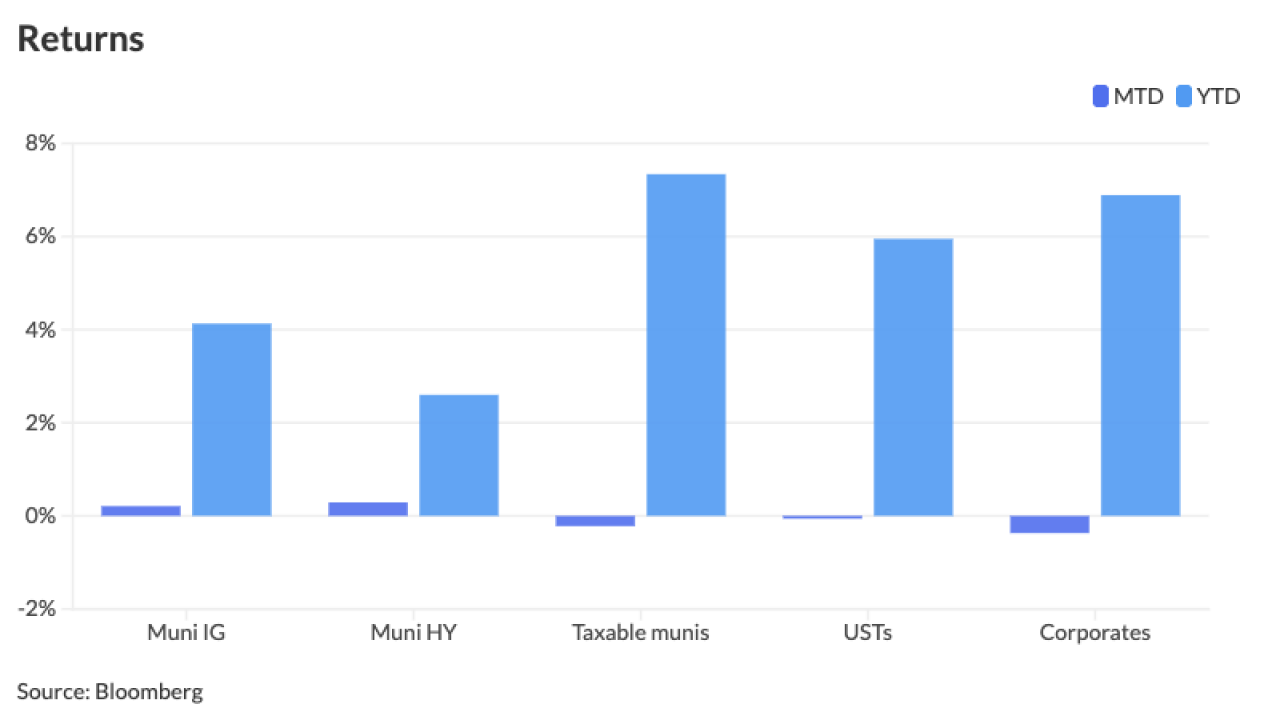"The state of our state is strong. Let's keep doing what works. Let's continue to make Florida the envy of the nation," Florida Gov. Ron DeSantis said in his state of the state address before the state Legislature on Tuesday. "My message is simple: Stay the course."
DeSantis blasted the Biden administration for a host of economic woes, such as the migrant crisis and rising inflation, speaking in the Florida House of Representatives chamber in Tallahassee in a joint session with the Senate.

DeSantis, who is running for the Republican nomination for president, said the "recklessness of spending, borrowing and printing of money over the past four years by the federal government has driven up the costs of everything from groceries to housing — and has saddled Americans with high interest rates. The national debt now stands at $34 trillion dollars."
Each American's share of the national debt is $100,000 while each Floridian's share of the state debt is $661, he noted.
"In NYC, there is a famous debt clock that shows the national debt going up in real time. I'd like to see one of those made for Florida's debt — only a Florida debt clock would be counting down, not up, because we have paid down nearly 25% of our state's debt over the past five years," he said.
While Florida has more residents than New York, DeSantis said, New York's budget is twice the size of Florida's. New York's fiscal 2024 budget was $229 billion; Florida's is $114.4 billion.
"Florida now has more manufacturing jobs than New York, added twice as many jobs as New York in the past year and our unemployment rate is 1.4 percentage points lower," he said.
The failures are not a result of chance, but of choices made by elected officials to put ideology over sound policy, DeSantis said.
In Illinois, "residents are saddled with high taxes, while spendthrift politicians continue to spend and borrow at some of the highest rates in the nation — with massive unfunded liabilities that will require even higher taxes in the future," he said. "Of course, soft-on-crime policies have devastated public safety in Chicago."
In California, per capita spending was triple that of Florida's, he said, "and they now face a $68 billion budget deficit. Violent crime is up, robberies are up and a recent Stanford University study shows that businesses are leaving in droves."
"It is not surprising that we have witnessed — and continue to witness —
Democrats were quick to say that DeSantis was taking credit for many federal policies — and federal funds.
"Ron DeSantis conveniently forgot to thank President Biden in his state of the state address for the hundreds of millions of dollars in federal funding that the president delivered for projects across Florida — projects that DeSantis has tried to take credit for," Sarafina Chitika, Democratic National Committee press secretary, said in a statement.
Last month, DeSantis unveiled his
Since DeSantis took office in 2019, the state has
The budget includes $1.3 billion in state and federal funding for disaster recovery, mitigation and emergency management. This includes $199.9 million in state matching funds linked to federal funding, which will go to eligible local and state recipients for reimbursement of response and recovery costs.
It also includes $396 million in federal community development block grants for local hurricane recovery and hardening, including disaster recovery and mitigation programs.
Florida is rated triple-A by Moody's Investors Service, S&P Global Ratings and Fitch Ratings and all three assign a stable outlook to the state.
Democrats, who are in the minority in both houses of the state legislature, were also critical of the budget proposal.
"The irony of Ron's 'Focus on Florida' budget is his complete inability to actually focus on Florida," said Florida Democratic Party chair Nikki Fried.
"He spent more time ranting about the state of California than proposing positive solutions for Florida," she said. "Ron says that his budget 'respects the taxpayers' of Florida, but his refusal to address property insurance, the housing crisis and cost of living are a slap in the face to struggling Floridians."
"Despite our successes, new challenges and opportunities confront us. Florida's long-term infrastructure needs far exceed current funding," House Speaker Paul Renner said Tuesday. "In collaboration with our Senate partners, we will commit new funds from the Seminole Compact to support Florida's environmental infrastructure and protect our natural resources for the future."
The state, he said, can fund initiatives to improve health care only if it restrains spending elsewhere.
"This means we must eliminate what remains of corporate welfare, avoid taking on new debt, and lower discretionary spending across the board. We must also build a budget that can withstand economic downturn tomorrow while protecting essential services," he said.
Senate President Kathleen Passidomo said, when developing legislation, "I always advocate the big tent approach — everyone is invited to help develop, revise and improve legislation."
During the last session, she said her number one priority was the Workforce Housing initiative — Live Local and in the upcoming session the Senate would focus on health and education issues
"Keeping that theme in mind, this session the Senate incorporated the big tent approach to legislation in both the Live Healthy and Learn Local initiatives. Throughout last summer and fall, we met with people from all over the state to hear their thoughts and ideas, and I feel really good about our work products."
She said the Senate wouldn't spend the next 60 days talking again about Medicaid expansion.
"Medicaid expansion is not going to happen. It is not a quick fix. It is not a panacea. In fact, if you cannot actually schedule an appointment with a health care provider, Medicaid expansion is nothing more than a false government promise," she said.
Instead, she said, a package is being worked on that "will expand Florida's health care workforce with new opportunities for education, training and retention. This includes enhancing partnerships between hospitals and colleges and universities that train health care workers, and residency slots and loan repayment options that drive providers to underserved areas."
Regarding education, she noted, every year more regulations are placed on local school districts. Telling districts what to do and how to do it was supposed to ensure quality, but it can also stifle innovation, she said.
"For decades now, we have rejected the idea that neighborhoods and zip codes alone should govern how and where a child is educated," she said. "We created and implemented rigorous standards across every aspect of the public school system as a way to make certain every child has access to a great education, regardless of where they live.
She said that under the Learn Local program the state won't lose any of the accountability measures it has instituted over the past 30 years.
"These metrics and measurements provide information to help parents make the best decisions for their children," she said. "Parents are more involved than ever before. Parents are the ultimate arbiter of performance. Parents will hold neighborhood schools, charter schools, and private schools accountable with their voices and their feet."
DeSantis also brought up education in his address Tuesday.
"In Florida, our universities must be dedicated to the pursuit of truth, the promotion of academic rigor and integrity, and the preparation of students to be citizens of our republic. We reject the modern trend of universities that subordinate high academic standards in favor of promoting an ideological agenda," he said.
"To this end, we have eliminated so-called DEI [diversity, equity and inclusion] from our public universities. DEI is a highly ideological agenda — in practice it stands for discrimination, exclusion and indoctrination — and it has no place in our public universities."
He also said the state has changed procedures for the hiring of faculty "to avoid ideological litmus tests and required all tenured professors to undergo review every five years so poor performers can be terminated."
Separately Tuesday, DeSantis directed the state university system and the Florida college system to waive certain transfer application requirements that would otherwise unnecessarily burden the transfer of Jewish students who have a well-founded fear of anti-Semitic persecution at their current postsecondary institution.
Recently the number of inquiries from out-of-state students to transfer to Florida universities and colleges grew.
Specifically, the actions would waive credit hour requirements for transfer applications and application date windows for transfers for academically eligible students who are seeking to flee discriminatory circumstances.
Additionally, DeSantis urged colleges and universities use their existing authority to grant out-of-state tuition waivers on a case-by-case basis for those students who may have a financial hardship when transferring from another state to a Florida institution.





